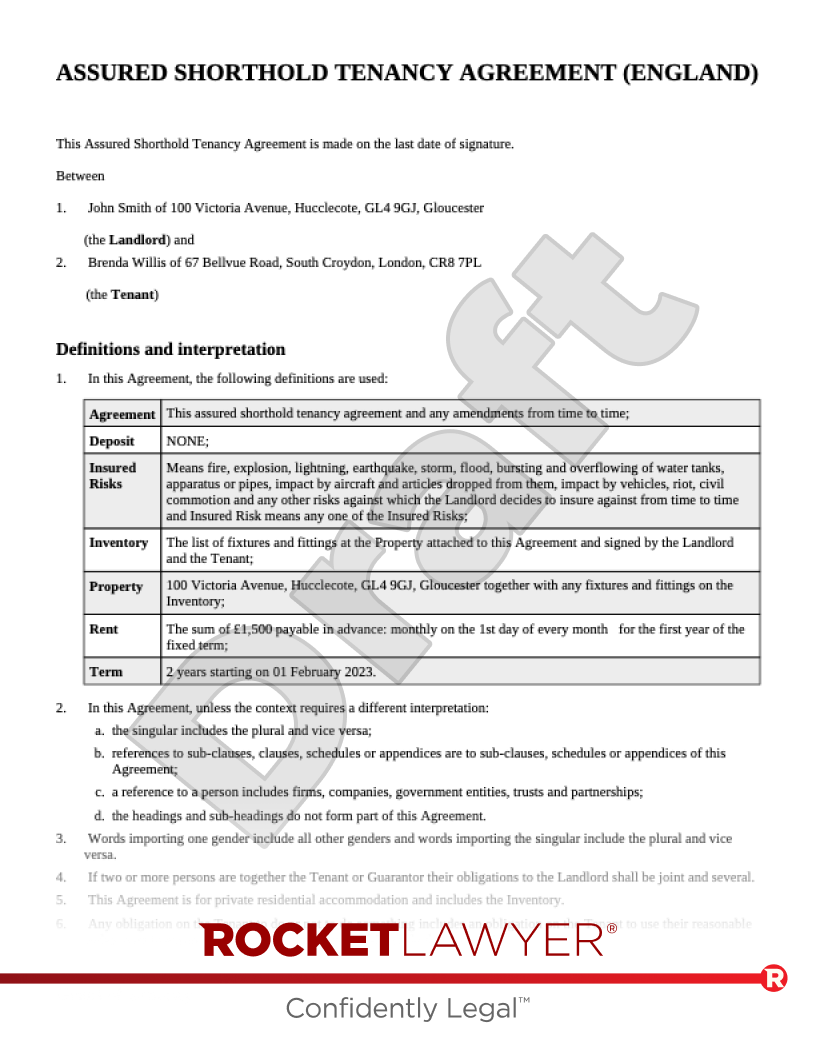What is a retaliatory eviction?
Retaliatory (or 'revenge') evictions occur when a landlord tries to evict a tenant who has asked for repairs or complained about the condition of their home.
Retaliatory evictions often occur when tenants report maintenance issues, request repairs or make complaints about substandard living conditions in their rental property. Rather than addressing the concerns raised some landlords may choose to evict the tenant instead, as a way to avoid their responsibilities or discourage tenants from asserting their rights.
Certain tenants are protected from such retaliatory eviction and a landlord can be prevented from evicting a tenant for a set period of time after an attempted revenge eviction.
ASTs starting on or after 1 October 2015
In England, the Deregulation Act 2015 protects certain tenants from revenge evictions. The rules protecting tenants against retaliatory evictions only apply to assured shorthold tenancies (ASTs) that started on or after 1 October 2015.
When do the rules apply?
The rules apply if the tenant:
-
complained to their landlord in writing (eg by letter or email)
-
complained about repairs or the condition of their home
-
received a Section 21 notice from their landlord in response, and
-
complained to their local council because their landlord didn't take steps to fix the problem. The council must have sent the landlord a notice telling them to make improvements
The rules may also apply if the tenant first complained to the council because they didn't have their landlord's postal or email address.
Hazard notices
Once the council serves the landlord with an improvement notice or notice requiring emergency remedial action, the landlord's right to serve a section 21 notice will be suspended for 6 months. If the notice is served before the court hearing, the landlord's case will fail and the court won't order the tenant to leave. If the council doesn't serve an improvement notice on the landlord before the court hearing, the court can make an order for the tenant to leave.
Improvement notice
If the landlord receives an improvement notice from the local council, then it means that there is a problem at the property that is serious enough to be regarded as a Category 1 or 2 hazard. The most dangerous hazards are Category 1 hazards and include things like leaky roofs and exposed wiring. Less dangerous hazards are Category 2 hazards and include things like dampness.
Notice requiring emergency remedial action
This means that the council can arrange for works to be undertaken to remove the risk of harm.
When do the rules not apply?
The rules do not apply if:
-
the tenant complained verbally
-
the landlord served a Section 21 notice upon the tenant before the tenant complained in writing
-
the council takes no action upon receiving the complaint or serves the landlord with a hazard notice
-
the tenant has caused the problem they're complaining about
-
the landlord uses the Section 8 procedure for eviction (eg if the tenant hasn't paid the rent)
-
the landlord has put the property up for sale
-
the property has been repossessed by the landlord's lender
Different rules apply to protect lodgers and other excluded occupiers. The landlord should give reasonable notice to leave (verbal or written) and the occupier must leave before the notice period ends.
ASTs starting before 1 October 2015
There is no special protection preventing a landlord from evicting a tenant if they complain about repairs. Rules that protect tenants from retaliatory eviction won't apply, unless the tenant starts a new tenancy, or signs a renewal contract.
Retaliatory evictions and occupation contracts
This only applies in Wales.
Under the Renting Homes (Wales) Act 2016, contract holders (also known as ‘tenants’) are prevented from retaliatory evictions. From 1 December 2022, landlords cannot evict contract holders who asked for repairs or complained about the condition of their rented dwelling (eg because it is not fit for human habitation). This also applies where a landlord seeks to terminate an occupation contract in reliance on a landlord break clause.
If a court finds that a landlord responded to a request for repairs by issuing a no-fault possession notice, they will not automatically be entitled to repossess the property. Further, if a landlord’s possession proceedings are refused on the ground that it was a retaliatory eviction, the landlord will not be able to serve a new no-fault eviction notice for the next 6 months.




